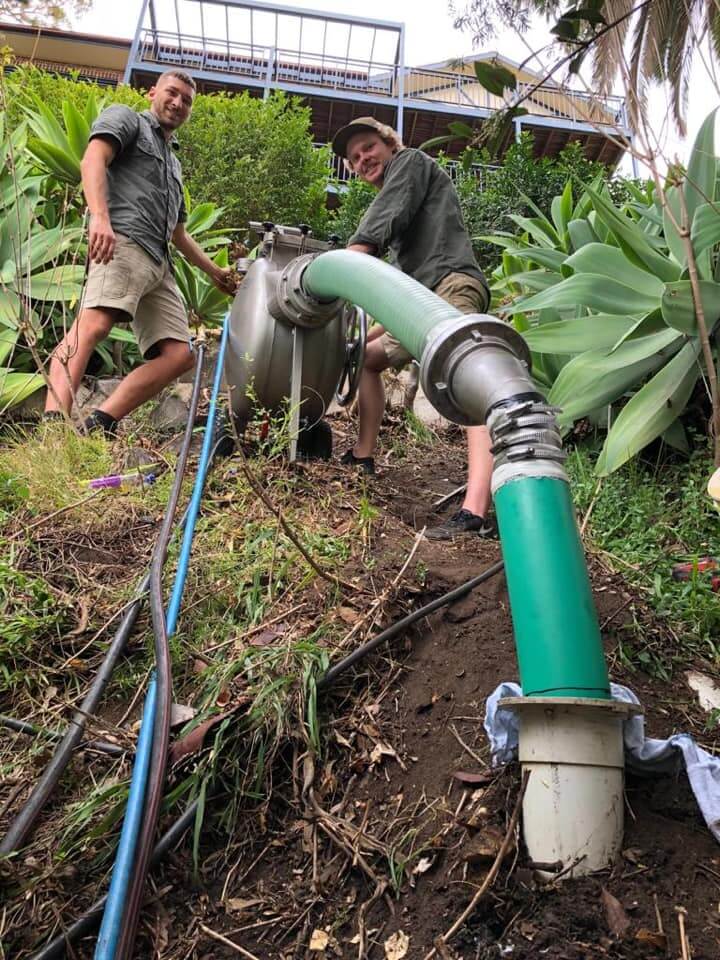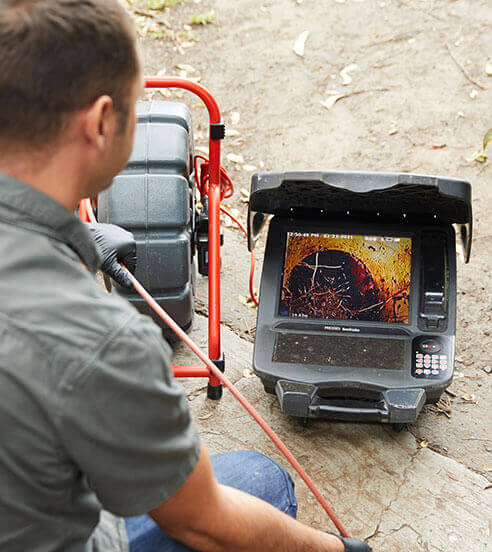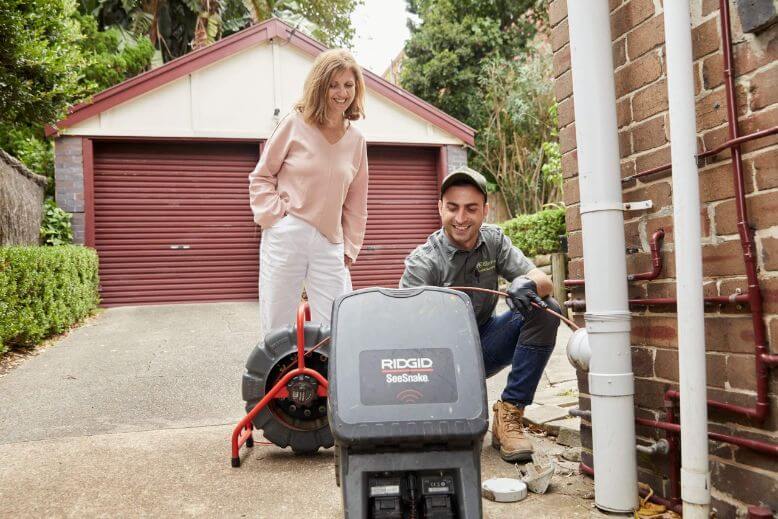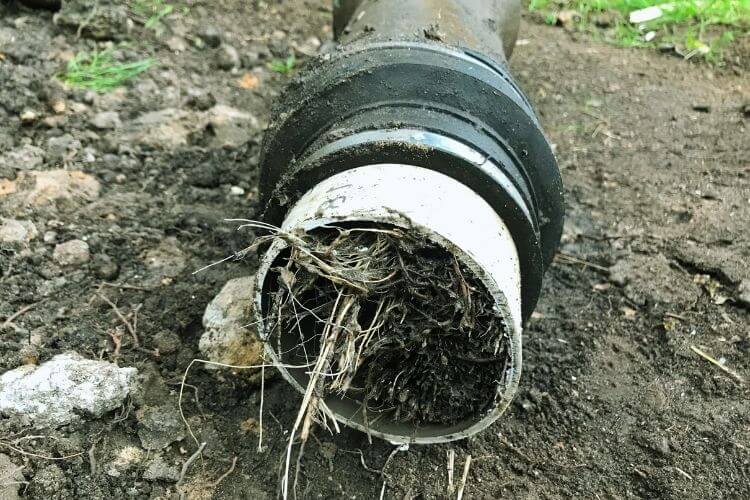When storms hit, the chaos they unleash can impact more than just your backyard – your home’s plumbing can also take a hit.
High winds can topple trees and disrupt underground pipes, and heavy rain can flood your property. If a storm has impacted your house, you need to take swift action. Understanding the scope of the potential damage is the first step in protecting your property’s plumbing infrastructure.
Want to prevent storm damage from compromising your home’s safety and comfort? In this article, we’ll show you how. From the critical first steps after a storm to the problems only a professional plumber can fix, you’ll have all the information you need to fully prepare for storm season.
How Storms Can Affect Your Plumbing System
Storms can wreak havoc on your plumbing system, leaving you grappling with water damage and other problems in the aftermath. The force of heavy rains and strong winds can lead to serious plumbing damage — and it typically can’t be seen straight away.
Here are the most common types of damage that storms can inflict on your home’s plumbing:
- Pipe Breakages: High winds and shifting soils can crack or even break pipes, leading to serious water leakage issues underground.
- Blockages: Storms can wash debris, leaves, and even broken branches into your drains and pipes, causing severe blockages that disrupt water flow and drainage.
- Flooding: Intense rainfall can overwhelm drainage systems, leading to basement flooding and saturated soils that pressure sewer lines.
- Backups: Overloaded or damaged sewer systems can lead to backups in your home, posing serious health risks and property damage.
In these situations, it’s critical that you respond quickly and call an emergency plumber to your home. To avoid running into these issues, we recommend weatherproofing your home ahead of time.
Initial Steps to Take Post-Storm

After a storm passes, it’s critical that you ensure the safety of your home and quickly assess any damage.
Here are the initial steps that every homeowner should consider taking:
- Safety First: If there’s visible damage and you suspect leaks, turn off the main water supply to prevent any flooding and reduce the risk of water damage.
- Assess Externally: Check your home’s gutters and downspouts for blockages or signs of damage. Clear any debris to prevent backups, which can lead to roof damage or interior leaks.
- Visual Inspection: Inspect the roof from the ground for any missing shingles or tiles, as these can let water infiltrate your home during the next bout of bad weather.
- Identify Problem Areas: Look around your property for pooling water, which can indicate potential drainage problems or foundation risks.
- Develop a Plan: Outline a plan for addressing these issues. Prioritise measures that protect your home against future storms. We strongly recommend calling in professional repair services for any significant damage you find.
Taking these steps can help safeguard your home against any lingering effects of storm damage. Plus, you’ll be made aware of any necessary repairs or adjustments.
Identifying Signs of Plumbing Damage
It’s important to stay vigilant after a storm. It can help you catch issues in your plumbing system before they escalate.
Here are some signs that your plumbing may have suffered damage:
- Leaks: Check under sinks and around appliances for any signs of dripping or pooling water. If you’re one of the rare homeowners in Sydney with a basement, be sure to check it out too.
- Water Discolouration: Take note of any unusual colours in your tap water, as this usually indicates pipe damage.
- Unusual Noises: Listen for sounds like dripping, gurgling, or banging within your walls, signalling a break or blockage.
- Cracks and Corrosion: Inspect exposed pipes for any signs of cracks or corrosion, particularly in older plumbing systems.
- Clogged Drains: Test drains and toilets for slow drainage or backups, which could point to storm debris causing clogs.
- Faucet and Valve Checks: Make sure that all of your faucets and valves operate properly without leaking or being hard to turn.
Spotting these issues early can save your household from the stress of plumbing emergencies. If you encounter any of these problems, you should contact professional plumbers who can accurately assess and address the damage.
The Benefits of Professional Inspection

A professional plumbing inspection post-storm is critical, especially if you’ve noticed some warning signs. You’ll need a comprehensive assessment of any damage to stop it going from bad to worse.
Here’s why:
- Comprehensive Coverage: Professionals examine every area of your plumbing system, leaving nothing to chance to ensure your home’s protection.
- Restoration and Protection: An expert can identify issues that aren’t immediately visible, outlining the necessary steps for restoration.
- Insurance Assistance: Detailed inspection reports can be invaluable in the case of insurance claims, making sure you receive adequate coverage for any repairs.
- Emergency Prep: Identifying any potential risks early can help prevent plumbing emergencies and safeguard your home against further damage.
A professional inspection can give you peace of mind, knowing that your plumbing system has received thorough attention and care.
Advantages of Pipe Relining Post-Storm
Have you heard of pipe relining? It’s a strategic way to repair storm-damaged plumbing with minimal disruption.
Here’s why it stands out:
- Efficient and Non-Invasive: Unlike traditional repairs, relining doesn’t require extensive digging. This preserves your property and significantly reduces repair time.
- Long-Term Protection: This method not only fixes any current damage but also strengthens your pipes against future problems, like root intrusions and soil shifts.
Choosing pipe relining means trusting the expertise of seasoned professionals who understand how to navigate the aftermath of a storm.
By reinforcing your plumbing system from the inside out, relining makes sure that everything from your drains to your garden remains intact, providing a level of prevention that’s hard to match with other repair methods.
Taking Proactive Steps for Future Storms

To safeguard your home against future storms, you’ll need a proactive approach to plumbing maintenance.
Here’s what you can do:
- Regular Checks: Schedule maintenance tasks and inspections to identify and address any vulnerabilities in your plumbing system.
- Backup Plans: Consider installing backup systems, such as a sump pump, to manage any excess water during heavy rain.
Expert plumbers can offer invaluable advice on protecting your property, drawing on their experience with materials and components suited to your specific area.
By taking these steps, you’ll place your home in a stronger position to withstand the challenges of severe weather, greatly reducing the risk of plumbing issues and the need for emergency repairs.
Safeguard Your Home with Expert Plumbing Care
In the aftermath of a storm, you need to ensure the integrity of your home’s plumbing to protect it against future damage.
The Relining Company stands ready with our expert plumbing services to assess, repair, and reinforce your pipes. From thorough post-storm inspections to efficient pipe relining solutions, our team offers the peace of mind you need to weather any storm.
Back to Top